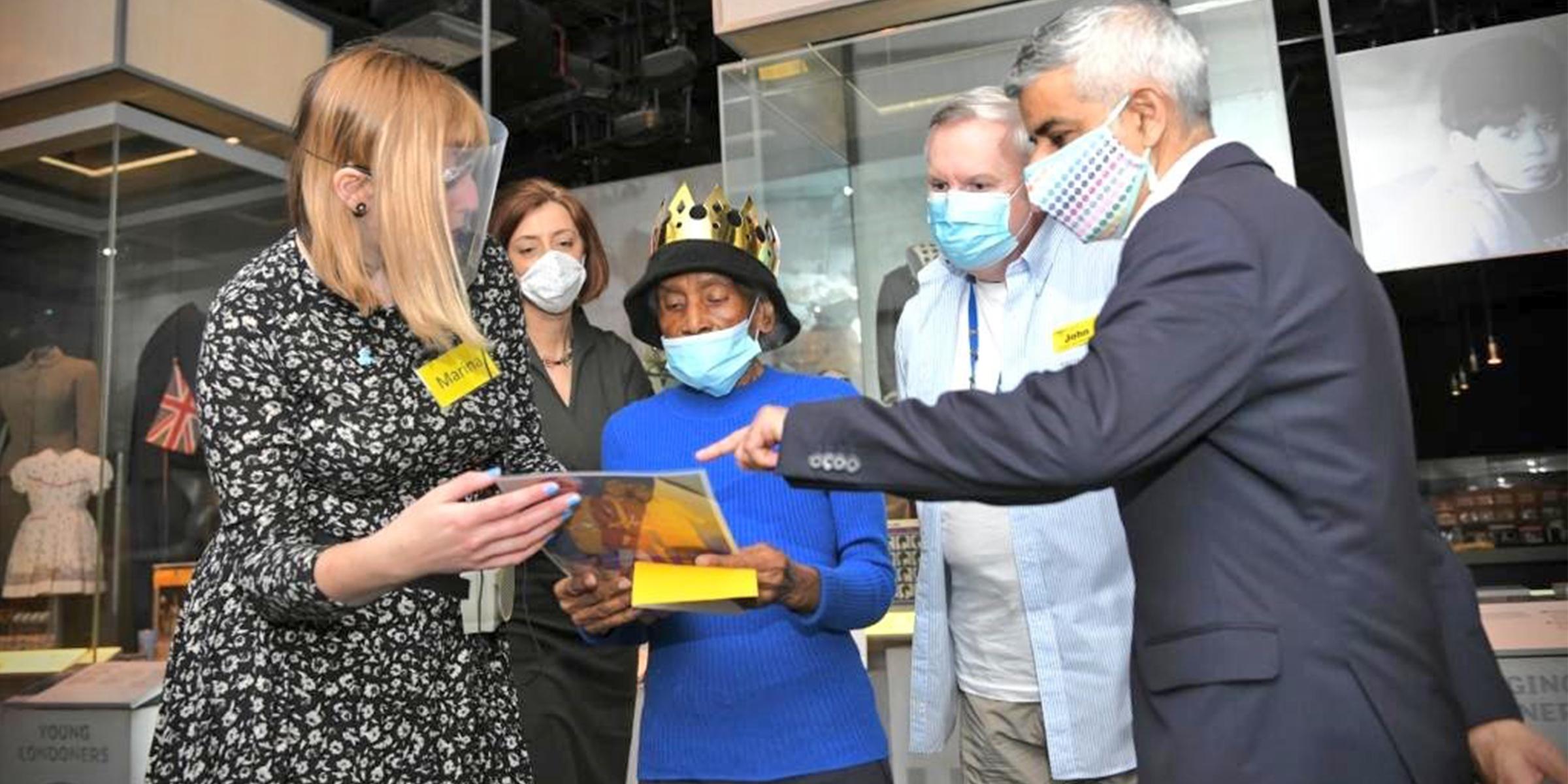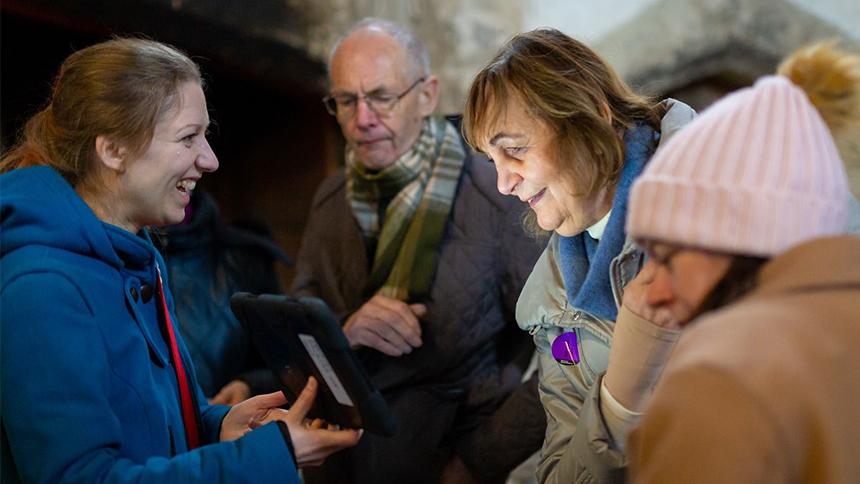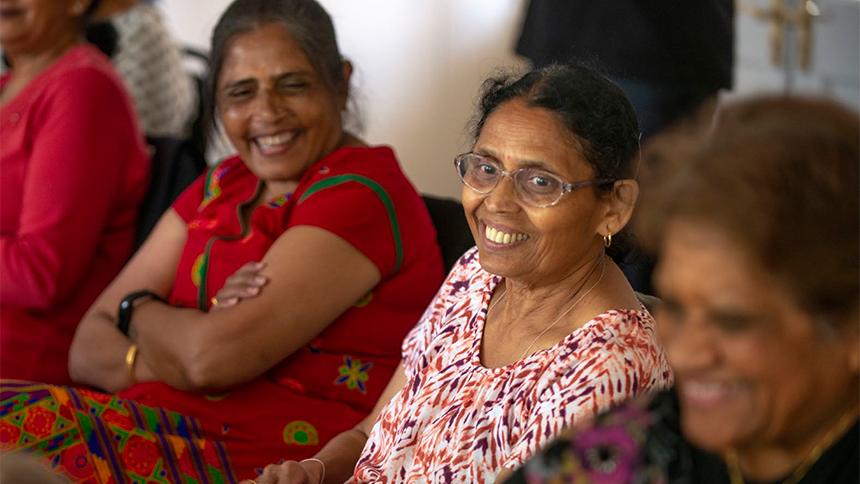
Making London’s cultural venues better places for people affected by dementia
Museums, theatres, galleries, libraries and other cultural venues in the capital are committing to becoming more dementia friendly.
In 2018, the Mayor of London and Alzheimer’s Society launched Dementia Friendly London with the support of many partners. Our shared ambition was to make London the first dementia-friendly capital city in the world.
This includes making sure that people affected by dementia can access all that the capital has to offer.
Last May, in partnership with the Society, the Mayor launched the world’s first Dementia Friendly Venues Charter for cultural public venues at the Museum of London.

Photograph: Historic Royal Palaces
Taking action
The Dementia Friendly Venues Charter was developed through consultation with people affected by dementia as well as a range of arts and cultural organisations – museums, theatres, galleries, libraries and others.
The charter sets out the kinds of things that make a venue more accessible for people with dementia and anyone supporting them. This can include sensory tours, inclusive performances and relaxed sessions, clear signage, designated chill out zones and staff training.
‘Organisations are now taking practical action to transform cultural venues for people living with dementia and their carers,’ says Justine Simons, Deputy Mayor for Culture and the Creative Industries.
‘Since its launch, 120 venues have signed up to the charter, to ensure those living with dementia can make the most of the city’s cultural attractions, including City Hall, Hackney Empire and William Morris Gallery.’
To share what’s worked the best and inspire new ideas, organisations signing up to the charter also become part of a Dementia Friendly Arts and Culture Network, led by the Museum of London. They can access guidance, materials, advice and support from Alzheimer’s Society too.
We’ve also helped develop an accreditation process to recognise achievements and maintain standards.
‘Dementia-friendly arts and cultural venues are crucial to ensuring people affected by dementia can still explore and enjoy a range of experiences across London,’ says Hannah Ward, Regional Public Affairs and Campaigns Officer at the Society.
‘By signing up to the charter, venues are showing a commitment to making their exhibitions, events and activities accessible for all.’

Photograph: Museum of London
Safe and comfortable
Seiwa Cunningham is Programme Manager for Memories of London – a programme of events and activities for people with dementia. It’s delivered by the Museum of London, one of the venues accredited by the charter.
‘We want people to be able to access our space knowing that it’s safe and comfortable,’ says Seiwa.
‘We’ve improved our signage, and our staff and volunteers wear Dementia Friends badges. We can turn down audio-visual elements for people with dementia, and we’re trying to create a dementia-friendly time slot and develop quiet spaces.’
The museum’s staff and volunteers also complete regular training to maintain their skills and awareness.
‘It’s important our staff know that dementia can bring out unexpected behaviour in a person,’ says Seiwa.
‘So, if that happens, they’re not surprised and are confident to assist people.’
During the pandemic, the Museum of London developed an online programme, including creative exercises and a live singalong. Seiwa has now decided to reinstate these.
‘It’s actually something quite crucial within the charter – you need to keep creating online content,’ she says. ‘People shouldn’t be denied engagement just because they can’t get out.’
Seiwa hopes that the museum’s work, and the charter in general, will help to raise awareness of dementia and its impact on people’s lives.
‘A lot of people think it’s just a cognitive condition – that’s the be all and end all. But there’s a lot of other issues, like mobility and heightened sensory needs,’ she says.
‘When people campaign about an issue, it’s often something that they’ve come to because they’ve been affected by it. We have to make it so that you don’t have to be affected by dementia before you think of people who are.’
More sensitive
Ronald Amanze, who lives with vascular dementia, welcomes the charter, which he would like to see replicated across the country.
‘I think dementia-friendly cultural venues are very important,’ he says.
‘Art has been the vehicle that enables me to communicate. When I get tangled with my words and can’t express myself, I tend to communicate my feelings in poems.
‘But I’ve had experiences in libraries where it was very difficult and unpleasant. Many of the problems were down to them not understanding me. People would perceive me as a problem, but they should have been more sensitive that my behaviour might have been down to health issues.’
Ronald recently appeared in a film at the Museum of London Docklands, which detailed how the venue seeks to be accessible for people living with dementia.
‘I have been working for a while now with Alzheimer’s Society, Deepness Dementia Radio and other organisations to ensure that the rich cultural diversity of the UK is represented in planning and resources for people with dementia,’ he says.
‘This is particularly important for London, which is recognised as not only a key cultural platform in the world but also one of the most culturally diverse cities.’
Dementia Voice
Help shape our work and use your experience to ensure everything we do reflects the needs of people affected by dementia.


